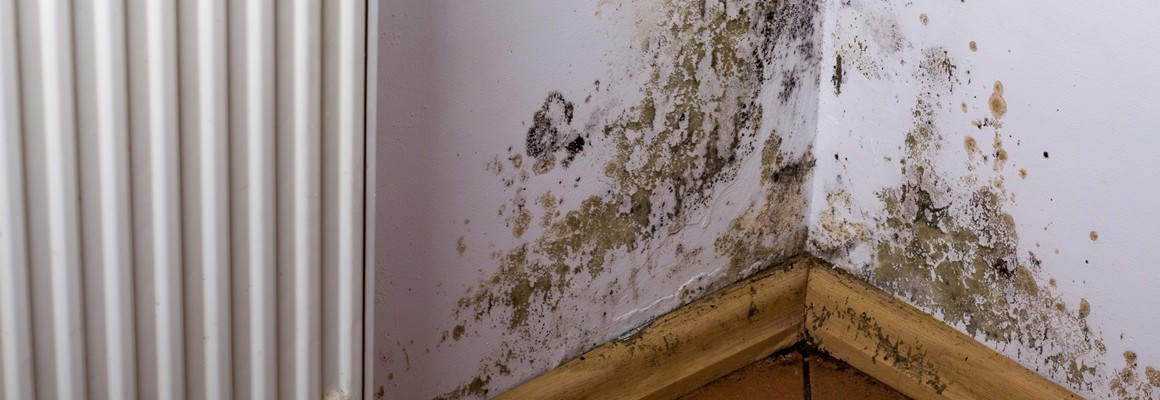Switching Off Heating Risks Damp And Mould
Cash-strapped tenants who switch off their heating to save money are causing a mould problem in rented property – leading to potentially serious health issues.
Household energy bills rose by 54% in April 2022 and then again by an average 27% in October 2022. That has left landlords facing yet another perfect storm:
- impoverished tenants are damaging properties by allowing mould to build up (though the cost of heating gave some tenants little real choice)
- it is landlords’ legal responsibility to deal with mould issues
- landlords are being demonised for a mould problem that may not be their fault
- landlords could be sued for personal injury – even though it was the tenants who caused the mould problem.
In the eight months to November 2022, there was a 30% rise in complaints about mould compared with 2020/21, said the Housing Ombudsman. Over that time, there have also been twice as many decisions by the ombudsman following investigations into leaks, damp and mould.
Heath Dangers Of Mould In Property
Mould is a microscopic fungus that can occur in damp or humid conditions if:
- properties are not heated properly in Britain’s rainy climate
- heated rooms are ventilated poorly, leading to condensation
- windows remain closed in winter to keep the heat in
- frozen pipes burst or leak
- window frames are poorly maintained, allowing rain to seep in.
Mould produces toxins that can cause breathing difficulties, watery eyes, a runny nose, coughing and sneezing, itching, headaches, fatigue and asthma attacks. Babies, older people or those with weakened immune systems can be particularly vulnerable.
Deaths are rare but in November 2022 a coroner found that two-year-old Awaab Ishak died tragically as a result of a severe respiratory condition due to prolonged exposure to mould at his home.
Independent charity the Health Foundation said the high cost of heating homes had created “a massive health problem” this winter.
Dropping a home’s temperature below 18° C for extended periods will impact the health of those living there – especially if they are already unwell.
Who Is Responsible For Dealing With Mould In Rented Property?
Landlords have a legal responsibility and a duty of care to ensure that their rental properties are free from mould and damp.
Repairing obligations are covered by Section 11 of the Landlord and Tenant Act 1985. And the 72-page Housing Health and Safety Rating System also highlights the threats posed by mould and damp.
Housing charity Shelter states that landlords should fix damp or mould issues if they are caused by a repair problem or affect tenants’ health and safety.
However, Shelter also points out that tenants are expected to heat and ventilate rented homes properly to stop the build-up of damp.
How Can Landlords Help Tenants Prevent Damp And Mould?
You can’t force tenants to dry damp clothes outside when bad weather or lack of outdoor space make it impractical.
But you could draw their attention to advice from Shelter and other organisations on minimising condensation, such as:
- covering pans when cooking
- using extractor fans in kitchens and bathrooms
- closing internal doors when showering
- leaving gaps between furniture and walls
- opening bedroom windows for five to 10 minutes after getting up.
Minimising condensation, stopping damp and mould is in everybody’s interests: you don’t want your tenants to suffer health problems any more than they do.
You could also highlight the measures that energy suppliers will have in place to help struggling families cope with large heating bills.
These payment plans could help your tenants pay off their energy bills in bite-sized chunks. This in turn can help them avoid falling behind with their rent.
Again, it’s in both your interests for the tenant to be able to pay their rent and energy bills.
What If The Tenant Has Damaged The Property?
As a landlord, you may have the right to deduct money from the deposit if there is mould in the property that was not there when the tenancy started.
If you fail to carry out repairs that are your responsibility, the tenant has the right to carry out the repairs themselves and may (rightly or wrongly) withhold the cost from future rent. Disrepair claims – whether valid or not – can mean considerable legal costs for both parties.
Evicting Tenants For Rent Arrears
As a landlord, you’ll know that it was all but impossible to evict tenants during the Covid pandemic.
You’ll also be aware that the government is planning to abolish Section 21 no-fault evictions – prompting some landlords to sell up and exit the private rented sector before it becomes harder to obtain possession of the properties.
If a tenant has failed to pay rent on time then you can issue a Section 8 eviction notice. But this must be done correctly. Get the procedural details wrong and you risk:
- the tenant refusing to leave
- rent arrears continuing to rise
- wasting money on failed litigation.
So it pays to get expert advice from debt recovery lawyers with specialist experience of landlord and tenant matters.
Further Reading
- Dealing With the Rise In Rent Arrears. Read more…
- What The Demise Of Section 21 Eviction Notices May Mean For Landlords. Read more…
Get Expert Legal Advice On Landlord And Tenant Law
Contact Coles Miller Debt Recovery Manager Eric Holt for specialist legal advice on recovering rent arrears, enforcement proceedings, tenant evictions and statutory demands. He is based at our Poole head office.






.webp)

